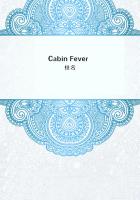Love of Nature, that strong feeling of enthusiasm which leads to profound admiration of the whole works of creation, belongs, it may be presumed, to a certain peculiarity of organization, and has, no doubt, existed in different individuals from the beginning of the world. The old poets and philosophers, romance writers, and troubadours, had all looked upon Nature with observing and admiring eyes. They have most of them given incidentally charming pictures of spring, of the setting sun, of particular spots, and of favourite flowers.
There are few writers of note, of any country, or of any age, from whom quotations might not be made in proof of the love with which they regarded Nature. And this remark applies as much to religious and philosophic writers as to poets,--equally to Plato, St. Francois de Sales, Bacon, and Fenelon, as to Shakespeare, Racine, Calderon, or Burns; for from no really philosophic or religious doctrine can the love of the works of Nature be excluded.
But before the days of Jean Jacques Rousseau, Buffon, and Bernardin de St. Pierre, this love of Nature had not been expressed in all its intensity. Until their day, it had not been written on exclusively.
The lovers of Nature were not, till then, as they may perhaps since be considered, a sect apart. Though perfectly sincere in all the adorations they offered, they were less entirely, and certainly less diligently and constantly, her adorers.
It is the great praise of Bernardin de St. Pierre, that coming immediately after Rousseau and Buffon, and being one of the most proficient writers of the same school, he was in no degree their imitator, but perfectly original and new. He intuitively perceived the immensity of the subject he intended to explore, and has told us that no day of his life passed without his collecting some valuable materials for his writings. In the divine works of Nature, he diligently sought to discover her laws. It was his early intention not to begin to write until he had ceased to observe; but he found observation endless, and that he was "like a child who with a shell digs a hole in the sand to receive the waters of the ocean." He elsewhere humbly says, that not only the general history of Nature, but even that of the smallest plant, was far beyond his ability.
Before, however, speaking further of him as an author, it will be necessary to recapitulate the chief events of his life.
HENRI-JACQUES BERNARDIN DE ST. PIERRE, was born at Havre in 1737. He always considered himself descended from that Eustache de St. Pierre, who is said by Froissart, (and I believe by Froissart only), to have so generously offered himself as a victim to appease the wrath of Edward the Third against Calais. He, with his companions in virtue, it is also said, was saved by the intercession of Queen Philippa. In one of his smaller works, Bernardin asserts this descent, and it was certainly one of which he might be proud. Many anecdotes are related of his childhood, indicative of the youthful author,--of his strong love of Nature, and his humanity to animals.
That "the child is the father of the man," has been seldom more strongly illustrated. There is a story of a cat, which, when related by him many years afterwards to Rousseau, caused that philosopher to shed tears. At eight years of age, he took the greatest pleasure in the regular culture of his garden; and possibly then stored up some of the ideas which afterwards appeared in the "Fraisier." His sympathy with all living things was extreme.
In "Paul and Virginia," he praises, with evident satisfaction, their meal of milk and eggs, which had not cost any animal its life. It has been remarked, and possibly with truth, that every tenderly disposed heart, deeply imbued with a love of Nature, is at times somewhat Braminical. St. Pierre's certainly was.
When quite young, he advanced with a clenched fist towards a carter who was ill-treating a horse. And when taken for the first time, by his father, to Rouen, having the towers of the cathedral pointed out to him, he exclaimed, "My God! how high they fly." Every one present naturally laughed. Bernardin had only noticed the flight of some swallows who had built their nests there. He thus early revealed those instincts which afterwards became the guidance of his life: the strength of which possibly occasioned his too great indifference to all monuments of art. The love of study and of solitude were also characteristics of his childhood. His temper is said to have been moody, impetuous, and intractable. Whether this faulty temper may not have been produced or rendered worse by mismanagement, cannot not be ascertained. It, undoubtedly became afterwards, to St. Pierre a fruitful source of misfortune and of woe.
The reading of voyages was with him, even in childhood, almost a passion. At twelve years of age, his whole soul was occupied by Robinson Crusoe and his island. His romantic love of adventure seeming to his parents to announce a predilection in favour of the sea, he was sent by them with one of his uncles to Martinique. But St. Pierre had not sufficiently practised the virtue of obedience to submit, as was necessary, to the discipline of a ship. He was afterwards placed with the Jesuits at Caen, with whom he made immense progress in his studies. But, it is to be feared, he did not conform too well to the regulations of the college, for he conceived, from that time, the greatest detestation for places of public education. And this aversion he has frequently testified in his writings. While devoted to his books of travels, he in turn anticipated being a Jesuit, a missionary or a martyr; but his family at length succeeded in establishing him at Rouen, where he completed his studies with brilliant success, in 1757.















